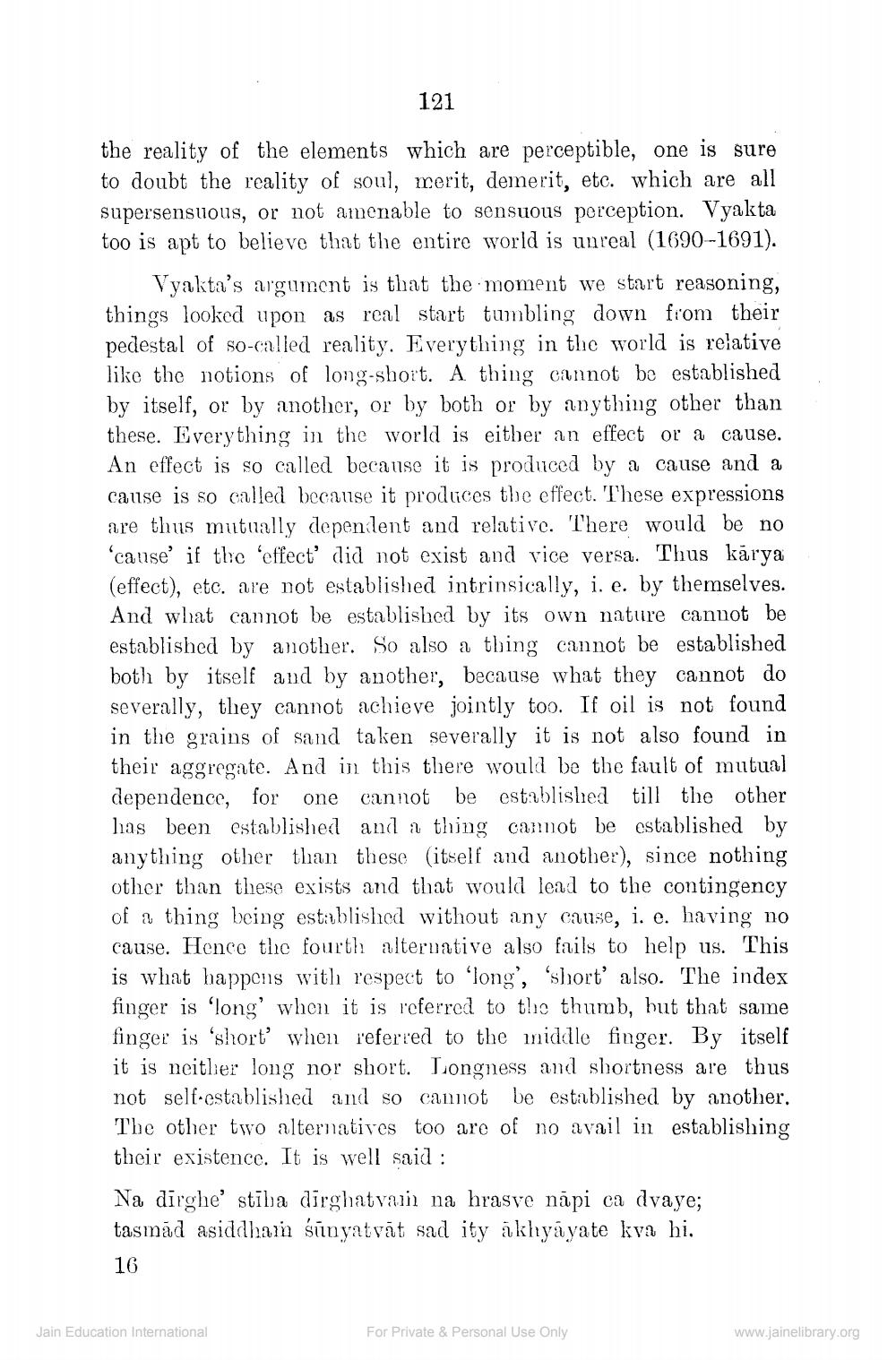________________
121
the reality of the elements which are perceptible, one is sure to doubt the reality of soul, merit, demerit, etc. which are all supersensuous, or not amenable to sensuous perception. Vyakta too is apt to believe that the entire world is unreal (1690-1691).
Vyakta's argument is that the moment we start reasoning, things looked upon as real start tumbling down from their pedestal of so-called reality. Everything in the world is relative like the notions of long-short. A thing cannot be established by itself, or by another, or by both or by anything other than these. Everything in the world is either an effect or a cause. An effect is so called because it is produced by a cause and a cause is so called because it produces the effect. These expressions are thus mutually dependent and relative. There would be no 'cause if the effect' did not exist and vice versa. Thus kārya (effect), etc. are not established intrinsically, i. e. by themselves. And what cannot be established by its own nature cannot be established by another. So also a thing cannot be established both by itself and by another, because what they cannot do severally, they cannot achieve jointly too. If oil is not found in the grains of sand taken severally it is not also found in their aggregate. And in this there would be the fault of mutual dependence, for one cannot be established till the other has been established and a thing cannot be established by anything other than these (itself and another), since nothing other than these exists and that would lead to the contingency of a thing being established without any cause, i. e. having no cause. Hence the fourth alternative also fails to help us. This is what happens with respect to 'long', 'short' also. The index finger is 'long' when it is referred to the thumb, but that same finger is 'short when referred to the iniddle finger. By itself it is neither long nor short. Longness and shortness are thus not self-established and so cannot be established by another.
The other two alternatives too are of no avail in establishing their existence. It is well said:
Na dirghe' stība dirghatvain na hrasve näpi ca dvaye; tasmad asiddhan śünyatvāt sad ity ākhyāyate kya hi. 16
Jain Education International
For Private & Personal Use Only
www.jainelibrary.org




